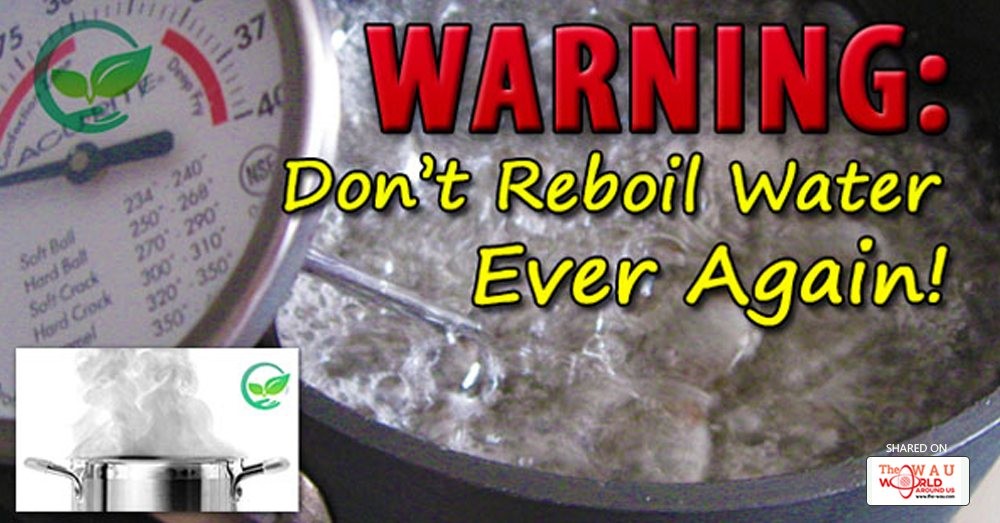Many people when boiling water in their electric kettle is that they soon forget about it, simply because their favorite TV show starts or because they are in the middle of something. So the perfectly hot water becomes cold again. Everyone will opt for turning the kettle back on and reboiling it, but do you know what happens to water when you reboil it?
Although very important, it’s something never taught in science classes. When water boils, its composition changes, which is normally a good thing as the volatile compounds evaporate and gases dissolve.This is why boiled water is safe for drinking.
Nonetheless, when water is left to boil for too long or is reboiled, its chemical compounds change for the worst. In this way many dangerous substances actually accumulate instead of being disposed of.
The exact same thing happens when water is reboiled, because its compounds amass increasing the risk of consumption of certain chemicals.
These substances often include arsenic, nitrates, and fluoride. Healthy minerals can also become harmful when amassed, such as calcium salts which can lead to kidney stones and gallstones when taken in large quantities.
The Damaging Effects of Reboiled Water
1. Arsenic
“Drinking-water poses the greatest threat to public health from arsenic.” according to The World Health Organization (WHO).
Arsenic exposure may lead to arsenic intoxication, which, depending on the level of exposure, can gradually develop physical effects throughout several years.
Potential risks of arsenic intoxication involve gastrointestinal symptoms, diabetes, peripheral neuropathy, cardiovascular disease, renal systems dysfunctions, skin lesions and even cancer.
2. Nitrates
Naturally there are nitrates all over earth, including the soil, water, and air. However, if the chemical is used as a food additive, for instance in meats, or if it’s exposed to high heat, like boiling water, it becomes highly dangerous.
High temperatures transform nitrates to nitrosamines, which are carcinogenic.
Nitrates have been linked to different cancers, including ovarian, colon, bladder, pancreatic, esophageal and stomach cancer as well as many diseases such as leukemia, non-Hodkin lymphomaetc.
3. Fluoride
Many studies have been conducted on the controversial chemical fluoride and its presence in drinking water. It’s a fact that fluoride is found in water and it potentially poses a danger to your health. Although its harmful properties are scientifically proved, the government insists on retaining it in our water.
Fluoride exposure showed adverse effects onneurological and cognitive development in children according to data from Harvard University obtained through 27 studies that were conducted over a period of 22 years.
The results were published in the journal of Environment Health Sciences and concluded that fluoride discovered in drinking water led to lower IQ scored among children.
Fluoride was also linked to lower fertility rates in male mice according to a more recent study, concluded in 2013.
Share This Post















